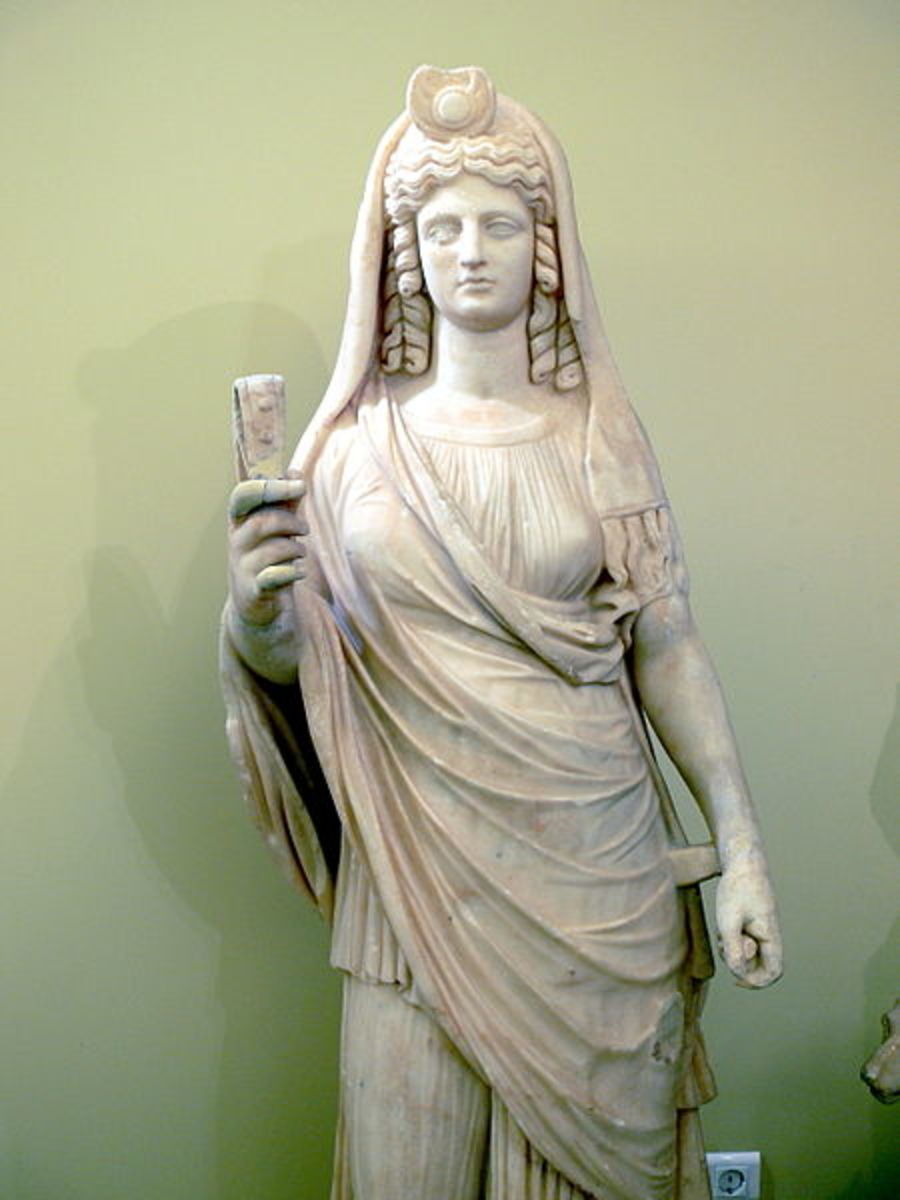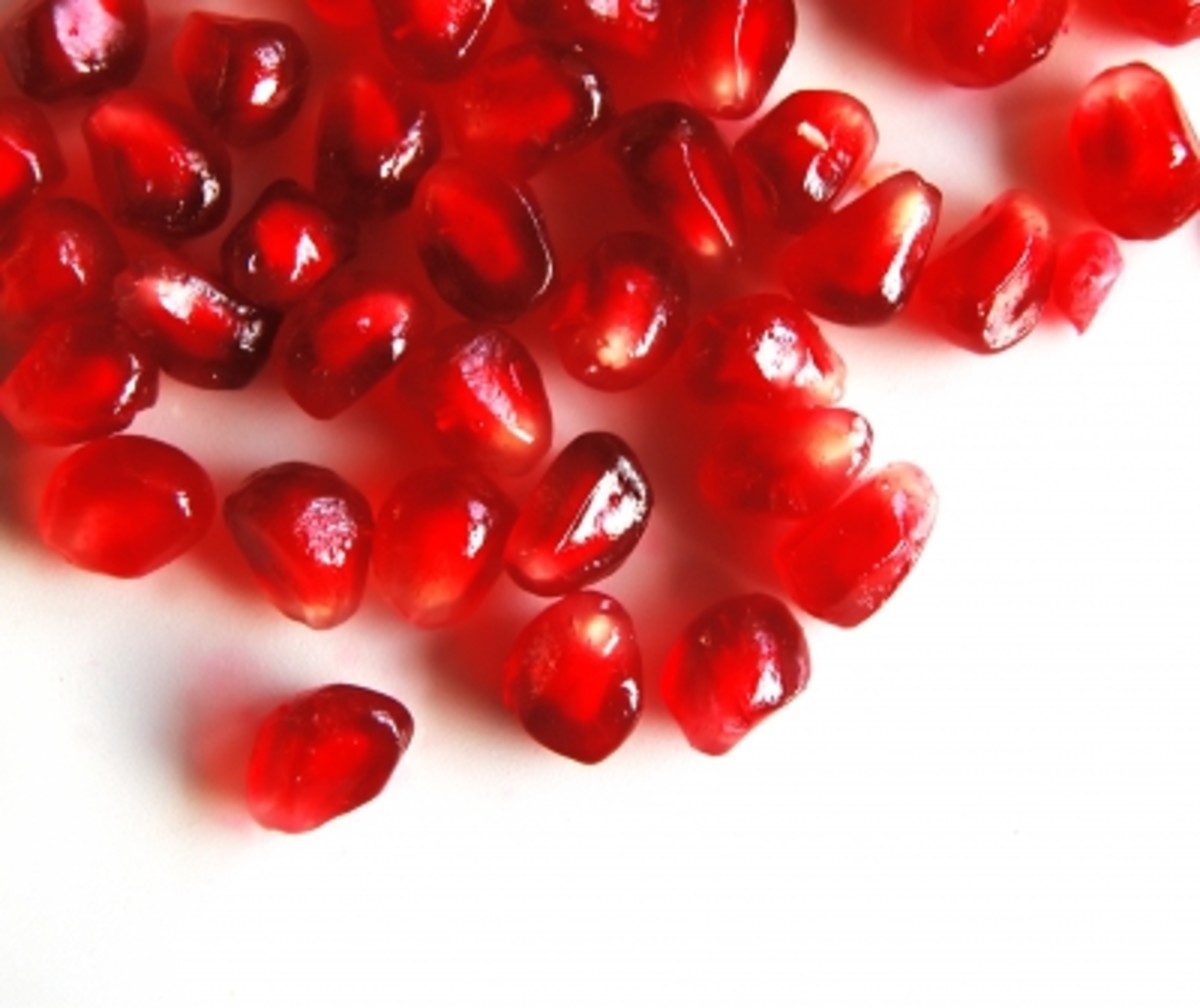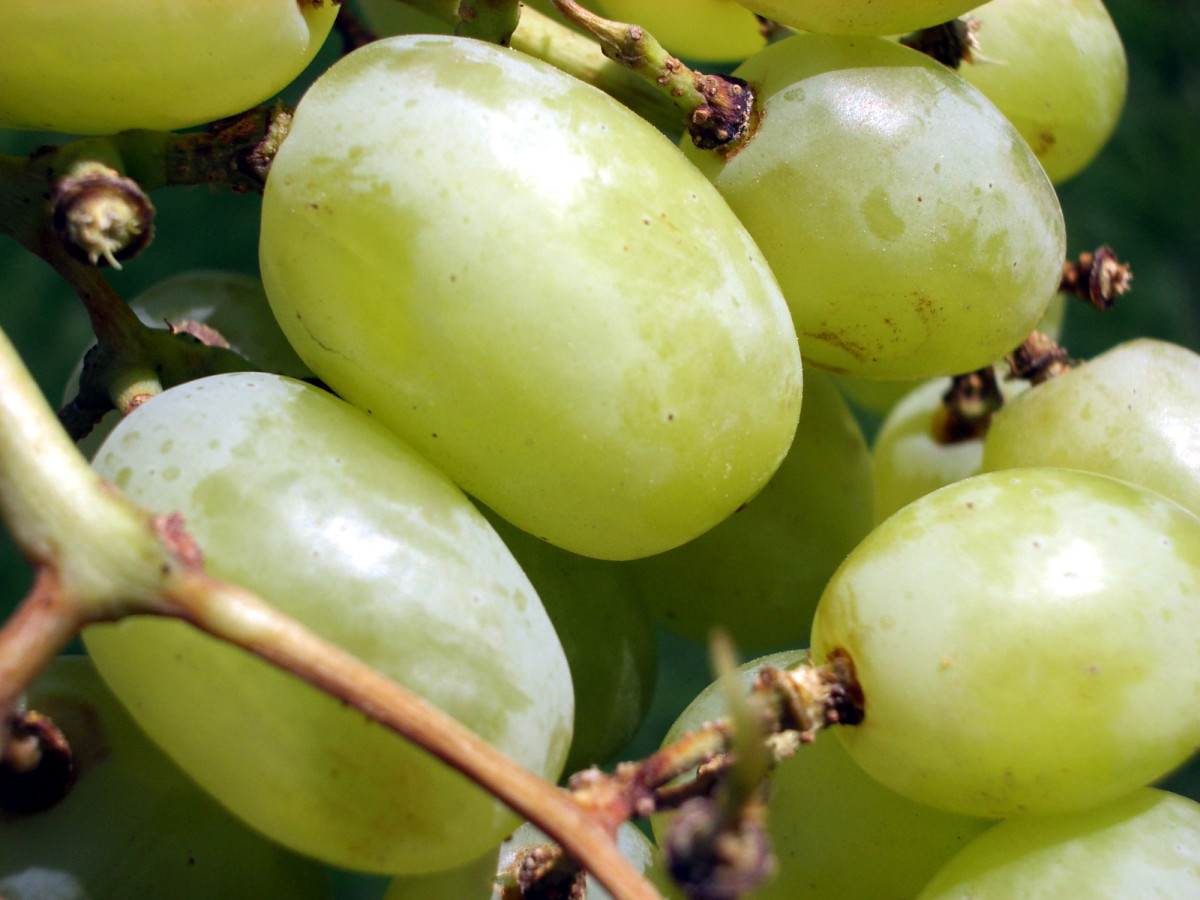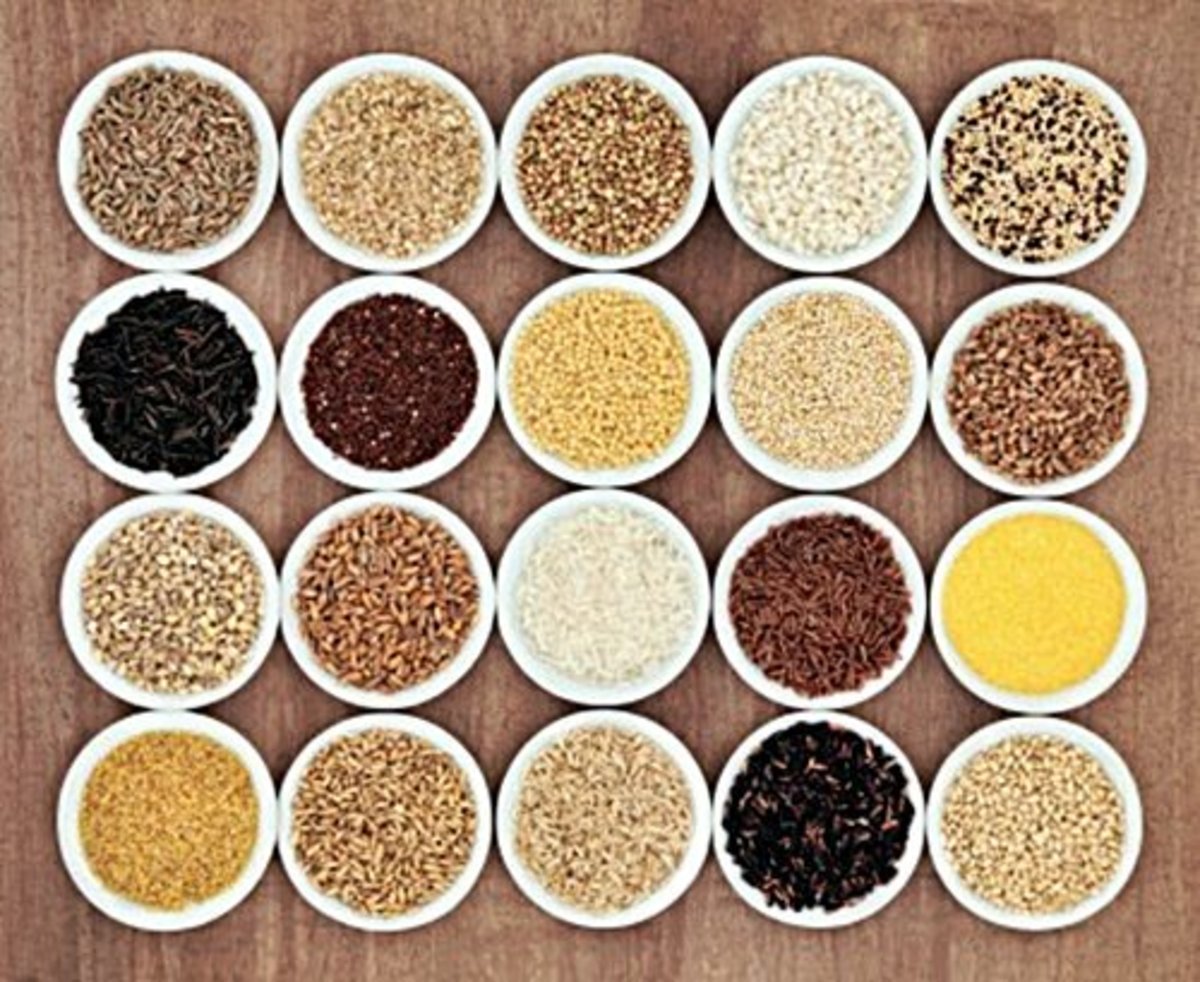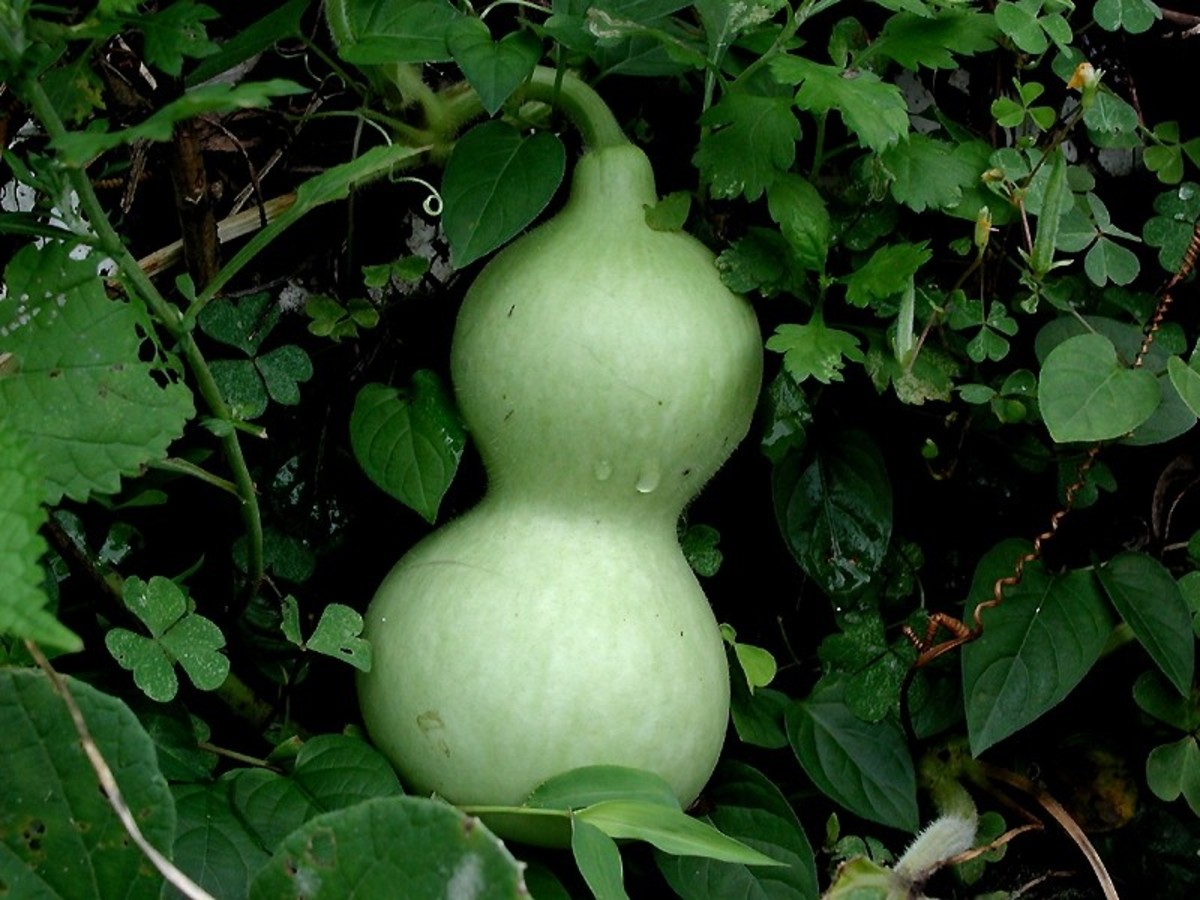The Fascinating Pomegranate: Its History and Health Benefits
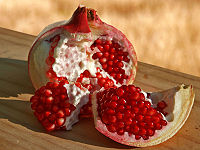
The pomegranate fruit has a history that is rich and fascinating. The fruit dates back to ancient times and originated in the Middle East. It was first cultivated in Persia (known today as Iran). Today pomegranates are cultivated throughout the Middle East, Mediterranean and Southeast Asia.
The word pomegranate is derived from the Latin words pommus (apple) and granatus (seeded). The pomegranate fruit is round with what appears to be a crown at the top. Its skin is thick and deep red in color. It is categorized as a berry and the edible seeds can be eaten raw or made into juice. The seeds can range from ruby red to reddish purple and are both sweet and tart in taste. In the northern hemisphere, pomegranates are in season from September through February.
The fruit was always held in high regard and represented fertility, life, good health and resurrection to the ancient Middle Eastern people. Pomegranates also have a negative connotation. A pomegranate has often symbolized death. This is because the juice of the pomegranate looks similar to blood. Cut a pomegranate in half and you will see the fruit "bleed".
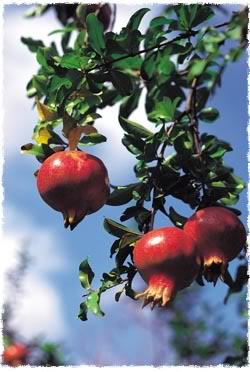
The Legend of the First Pomegranate Tree
The Greek god Orion had a beautiful wife. She was so stunning that her beauty rivaled even that of Hera, goddess of marriage and wife to Zeus. For trying to compete with Hera, Orion's wife was punished and her children were killed. In agony, she threw herself from a cliff. It is where her blood shed that the first pomegranate tree grew.
In another, not so tragic story, the first pomegranate tree was planted on a Greek island by the goddess of love herself, Aphrodite. The fruit's nickname, the apple of love, comes from this legend.

The Legend of Hades and Persephone
The Greek god of the underworld, Hades, fell in love with Persephone, the daughter of goddess Demeter. He loved her so much he took her and brought her back to live with him, making her queen of the underworld. Upon finding out her daughter was abducted and in the underworld, Demeter went into mourning and refused her blessings of crops to the earth. A famine broke out and Zeus had to intervene. He demanded that Hades return Persephone to her mother. He did, right after tricking her to eat six seeds of a pomegranate. Because of this she must return to Hades for six months of each year. When Persephone leaves for the underworld, Demeter grieves, crops die and the world becomes cold and dark. When she is returned, there is a renewal of warmth and regrowth. In Greek mythology, this explains how the seasons began.
Pomegranates in Judaism and Christianity
Many scholars believe the forbidden fruit in the Garden of Eden was not an apple, but a pomegranate. Perhaps this is why the Virgin Mary is often depicted in paintings holding a pomegranate. In Exodus 28:33-34 it is said that the image of pomegranates should be woven into the robe worn by the High Priest. King Solomon also designed his crown to look like a pomegranate.
In Jewish tradition, the pomegranate is a symbol of righteousness. The pomegrante is believed to contain 613 seeds, which is the number of mitzvot (commandments) in the Torah. It is also custom to eat pomegrantes on Rosh Hashanah.
The Healthiest Fruit on Earth
There is so much hype about pomegranates and the health benefits from adding this exotic fruit to your diet. Should you believe all the hype? In one word: Yes. Pomegranates contain an unusually high level of flavanoids, which is a powerful antioxidant that protects against many cancers - including breast and prostate cancer.
Pomegranates are high in Vitamins A, C, E, B and K. It is also rich in minerals, such as potassium, zinc and calcium.
Pomegranates keep the heart healthy, lowering LDL levels (the bad cholesterol) and blood pressure, hence, reducing the risk of heart attack and stroke. The calcium in pomegrantes will keep your bones and joints strong, thus preventing osteoporosis, arthritis and osteoarthritis. This miracle fruit strengthens the immune system and keeps your body healthy. Studies have shown that eating pomegranates regularly can even prevent Alzheimers Disease.
All of this and pomegranates can actually slow down the aging process, help you slim down and keep your skin lookin young and vibrant!
How to Seed a Pomegranate
Pomegranates can be really messy to seed. It doesn't have to be such a messy process. Here is an easy way to seed a pomegranate.
Wash pomegranate well and place in a mixing bowl. Cut pomegranate in half. Submerge the halves in a bowl of water and use hands to remove the seeds. Drain in colliander to remove the bits of membrane. Seeds are now ready to eat!
Fresh Pomegranate Juice
Don't bother buying pomegranate juice at the store. Most of the juices out there are filled with sugar. It's better and so much cheaper to make your own pomegranate juice. It's really easy too! Just put the pomegranate seeds in a blender. Blend until seeds are pulverized.
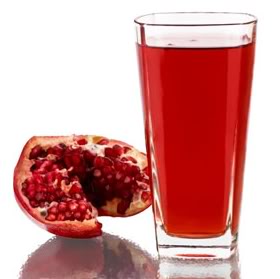
Hopefully this hub will inspire you to add this yummy fruit into your diet. Research keeps on proving what a powerhouse pomegranates truly are. Your body will thank you!
Check out my other hubs about super foods!
- Figs: A Super Tasty Super Food
Are you trying to add more tasty and healthy fruits in your diet? Look no further than the fig. Figs are tasty and chock full of antioxidants. - Benefits of Raw Honey
Honey in its raw form is a super food with endless nutrients and health benefits. Learn why honey is so wonderful and why honey should be consumed daily.


